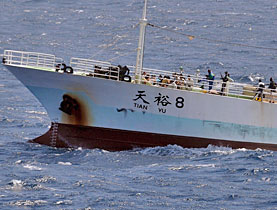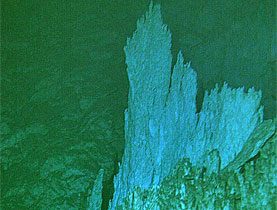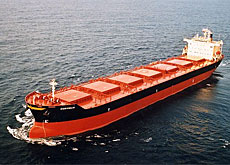Swiss alarmed by surge in Somali piracy

With 30 per cent of Swiss-bound goods passing through the Gulf of Aden, the sharp rise in Somali pirate attacks is "alarming", warn the federal authorities.
The Swiss merchant navy is at risk, according to the Federal National Economic Supply Office. Swiss-based ship owners and shipping companies are also worried by the surge in Somali piracy.
According to the International Maritime Organisation (IMO), there were 264 piracy attacks around the world in 2007. By September this year there had been 199. But in the Gulf of Aden and off war-torn and lawless Somalia and its breakaway region of Puntland, the number of attacks doubled to 60 in 2007 and has soared to 92 so far this year.
Eight vessels have been seized in the past two weeks alone, including a massive Saudi supertanker loaded with $100 million (SFr122 million) worth of crude oil. Several hundred crew are now in the hands of Somali pirates.
Landlocked Switzerland has one of the most modern merchant navies in the world: 33 privately operated tankers, container ships and bulk cargo carriers fly under the Swiss flag in international waters. They are operated by six Swiss shipping companies and can transport up to 900,000 tonnes.
“Like others, Swiss ships often travel through the Gulf of Aden or along the Somali coasts, so they too are at risk,” Michael Eichmann, director of the Federal National Economic Supply Office, told swissinfo.
His office is responsible for overseeing the supply of goods to Switzerland and can decide what use the Swiss merchant navy can be put to, if necessary.
With some 30 per cent of Swiss trade passing via this region, the rise in attacks is alarming, Eichmann admitted.
Strong measures
Michael Deslarzes, chief executive officer of Massoel Meridian shipping company in Geneva, echoed this concern.
“It is certain that the threat around the Horn of Africa and along the coast of Somalia has increased and stronger precautionary measures have to be implemented,” he said.
“Of course, compliance with war risk underwriters’ recommendations, increasing security levels onboard and ensuring that each ship is provided and trained with the use of emergency procedures is a must.”
But ship owners and crew can only take limited additional measures when faced with determined pirates with speedboats and grappling hooks.
“We don’t want to arm our ship crew. It’s very difficult. They are not soldiers or policemen who have experience with weapons. It’s also difficult to equip a ship with weapons for customs reasons,” Eichmann told Swiss radio. “For the moment we are discussing whether our ships should travel in convoy accompanied by military forces.”
Growing flotilla
Naval forces are growing all the time in the region following the spate of attacks. There is already a small flotilla of warships in the region from countries including the United States, Britain, Canada, France, Turkey, Germany, Russia and India.
The military approach has had a certain degree of success. The warships have established a safe shipping lane and escort food aid ships into Somalia. The Royal Navy recently shot and killed two pirates and captured others. The French staged a daring capture of pirates who had taken over a yacht. India’s navy said one of its warships had destroyed a pirate “mothership” in the Gulf of Aden in a brief battle on Tuesday. The European Union is about to launch its first naval action.
But some experts say international law, the United Nations Law of the Sea Convention, today places limitations on daring military action.
On Thursday, the UN Security Council adopted a resolution on freezing assets and placing a travel ban on people supporting piracy.
But for private ship owners like Peter Zurcher, managing director of Nyon-based ABC Maritime AG, a military convoy is the only option.
“The ideal solution would be a government in Somalia but we’ve been waiting for that since 1991 so I don’t expect that to happen very soon. The only solution I see is the EU proposal to have a fleet of survey or navy ships, but it also needs helicopters and planes as the area is becoming much bigger,” he said.
The U.N. Security Council voted unanimously Thursday to impose sanctions on pirates, arms smugglers, and perpetrators of instability in Somalia in a fresh attempt to help end lawlessness in the Horn of Africa nation.
Rerouting
Close to 12 per cent of global tanker voyages moving crude oil and petroleum products traverse the Gulf of Aden to and from the Suez Canal.
Norway’s Frontline, one of the world’s biggest oil tanker owners, said on Wednesday it was “definitely considering” instructing its fleet to avoid the Gulf of Aden and the Suez Canal because of piracy.
Europe’s biggest ship owner, Maersk, also said it was on the brink of rerouting ships via the Cape of Good Hope.
The implications could be dramatic, both in terms of the resultant additional tonne-miles and increased transit times.
“All this is starting to have an impact on the market even if it’s not that visible,” said Gilles Rolland, who manages crude oil shipments for Riverlake Shipping in Geneva.
For Deslarzes the only way to get rid of the piracy problem along the Somalia coast is via concerted and organised international measures, which regrettably would probably have to include military action.
“Regular and increasing navy patrols in the area do have a positive impact in terms of prevention, but are certainly not sufficient to tackle the problem,” he said.
“It’s a highly political question,” Eichmann said. “We all agree that something must be done, but it’s not clear what exactly.”
swissinfo, Simon Bradley in Geneva
Switzerland has one of the most modern merchant navy fleets in the world, comprising 33 privately operated tankers, container ships and bulk cargo carriers that fly the Swiss flag in international waters. They have an average age of 4.5 years.
In March 2008 the Swiss parliament approved a five-year, SFr500 million support package for the country’s merchant navy operators. Parliament had already accepted a ten-year funding mechanism totalling SFr600 million in 2002.
Officially based in Basel’s Rhine port, the navy was set up to ensure that the flow of goods would enter Switzerland in the event of a crisis.
In 2002 Swiss sailors accounted for about three per cent of all sailors worldwide.
The waters off the Somali coast are the most dangerous in the world, accounting for a third of the world’s pirate attacks.
The pirates run sophisticated operations using the latest hi-tech equipment such as satellite phones and GPS. They are also heavily armed with rocket-propelled grenades and AK-47s.
The pirates are known to receive tip-offs from contacts at ports in the Gulf of Aden. They use speedboats with very powerful outboard motors to approach their target. Sometimes the speedboats are launched from much larger “motherships” on the high seas.
To actually hijack the ships, the pirates first use grappling hooks and irons – some of which are even rocket-propelled – and climb aboard using ropes and ladders. The pirates have also on occasion fired at the ships to scare them into stopping, so it is easier for them to board the vessel.
The pirates then sail the hijacked ship to the Somali pirate hub town, Eyl. There, pirates board the ship and normally take the hostages to shore where they are usually well looked after until a ransom is paid.
According to the International Maritime Bureau, there have been 92 attacks this year, 36 successful hijackings. In all, 14 ships are currently held, including the MV Faina carrying tanks and 268 crew, who are being held hostage.

In compliance with the JTI standards
More: SWI swissinfo.ch certified by the Journalism Trust Initiative



You can find an overview of ongoing debates with our journalists here. Please join us!
If you want to start a conversation about a topic raised in this article or want to report factual errors, email us at english@swissinfo.ch.